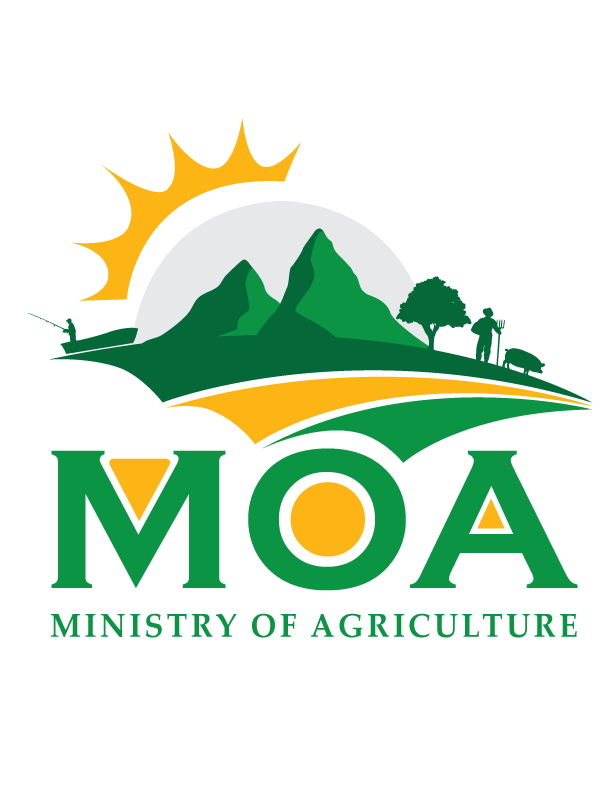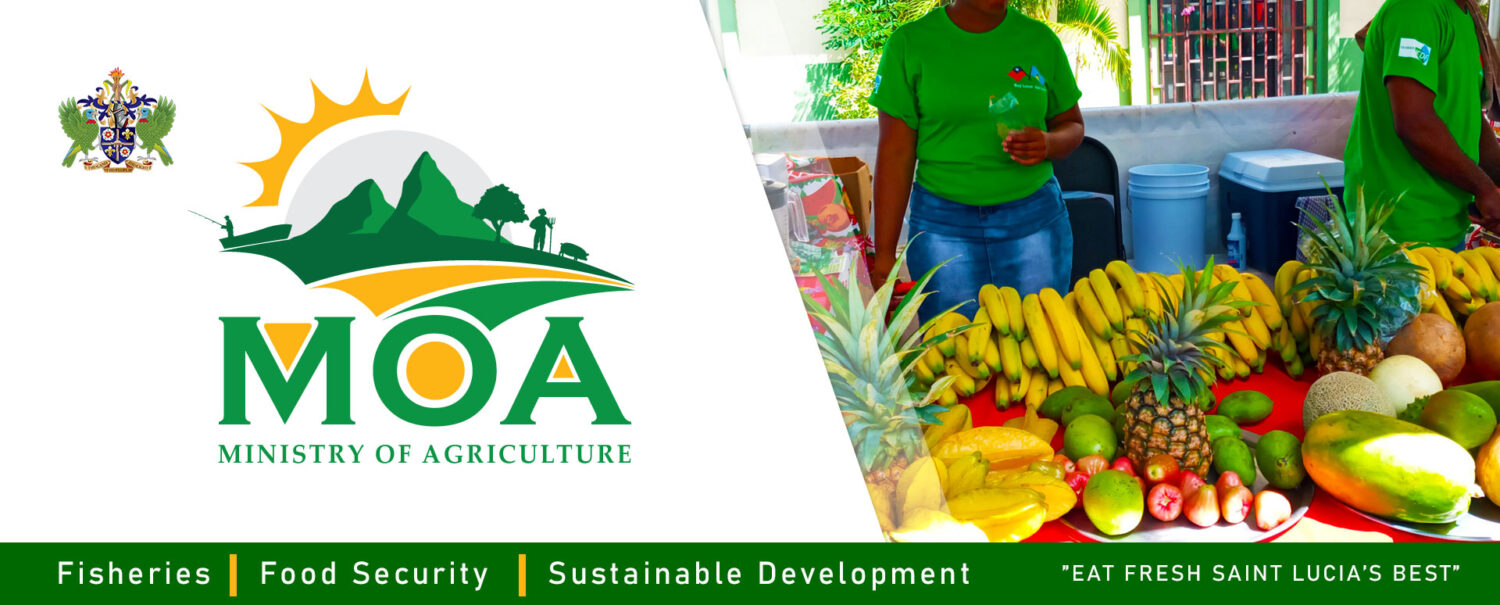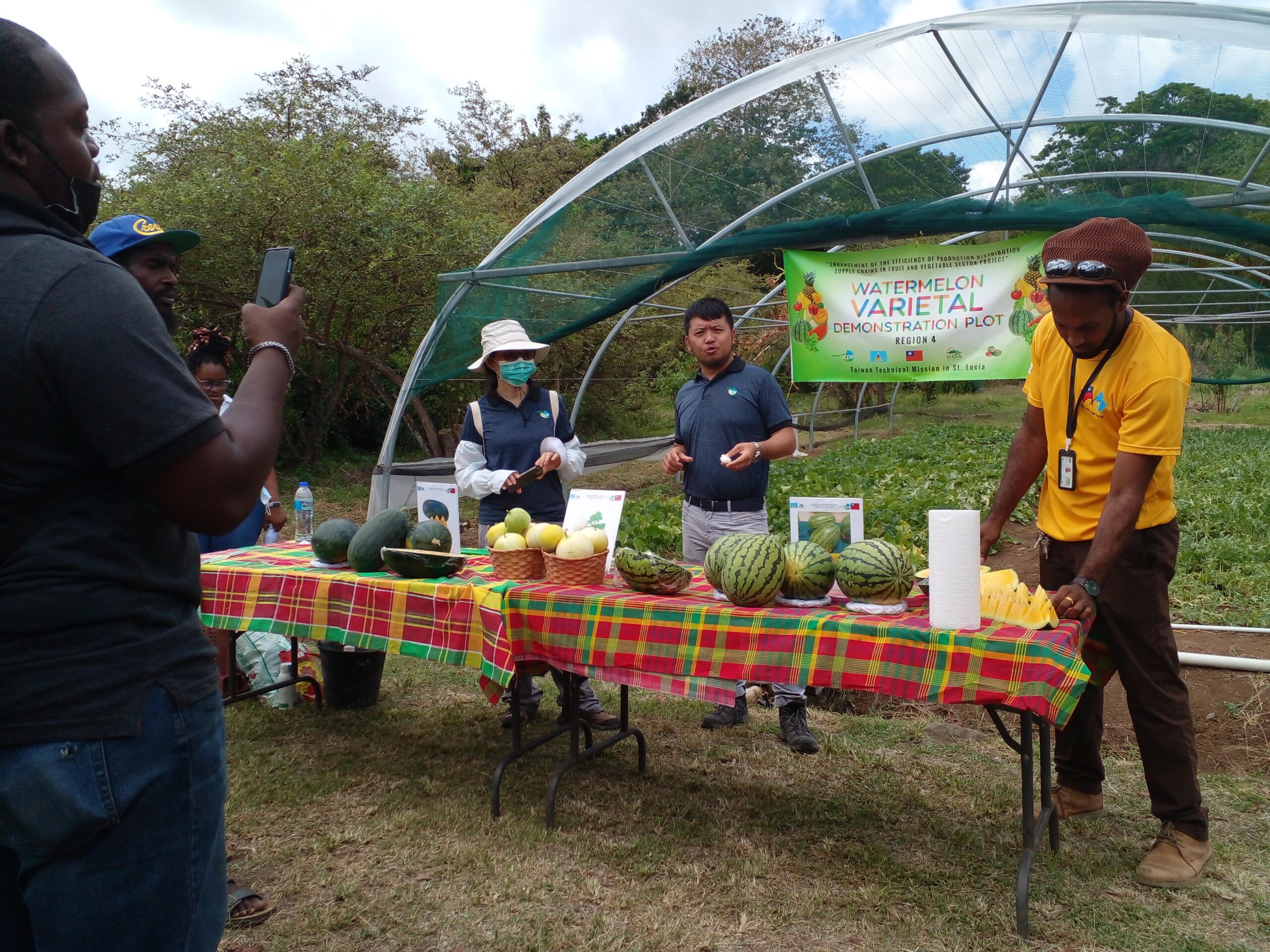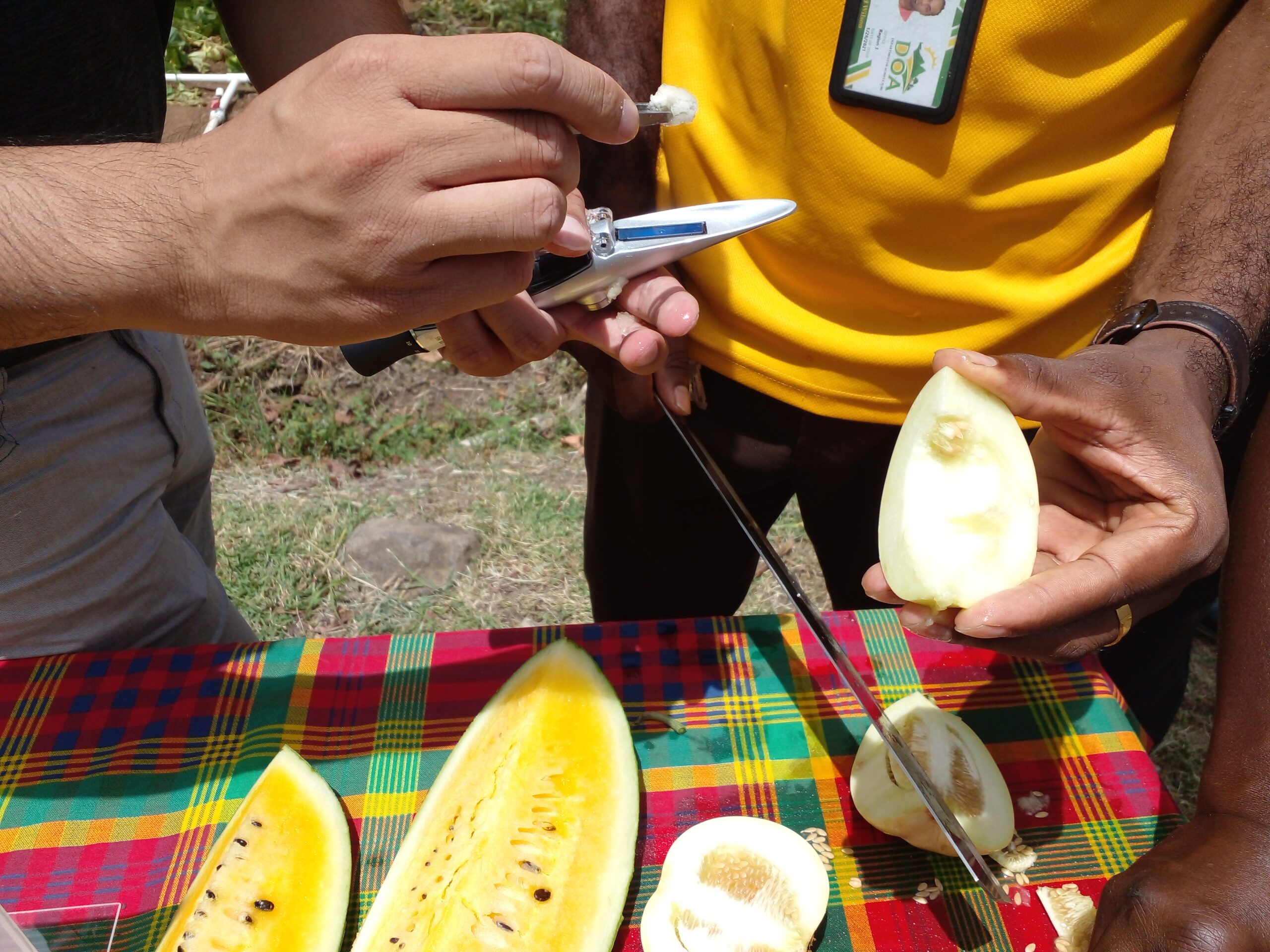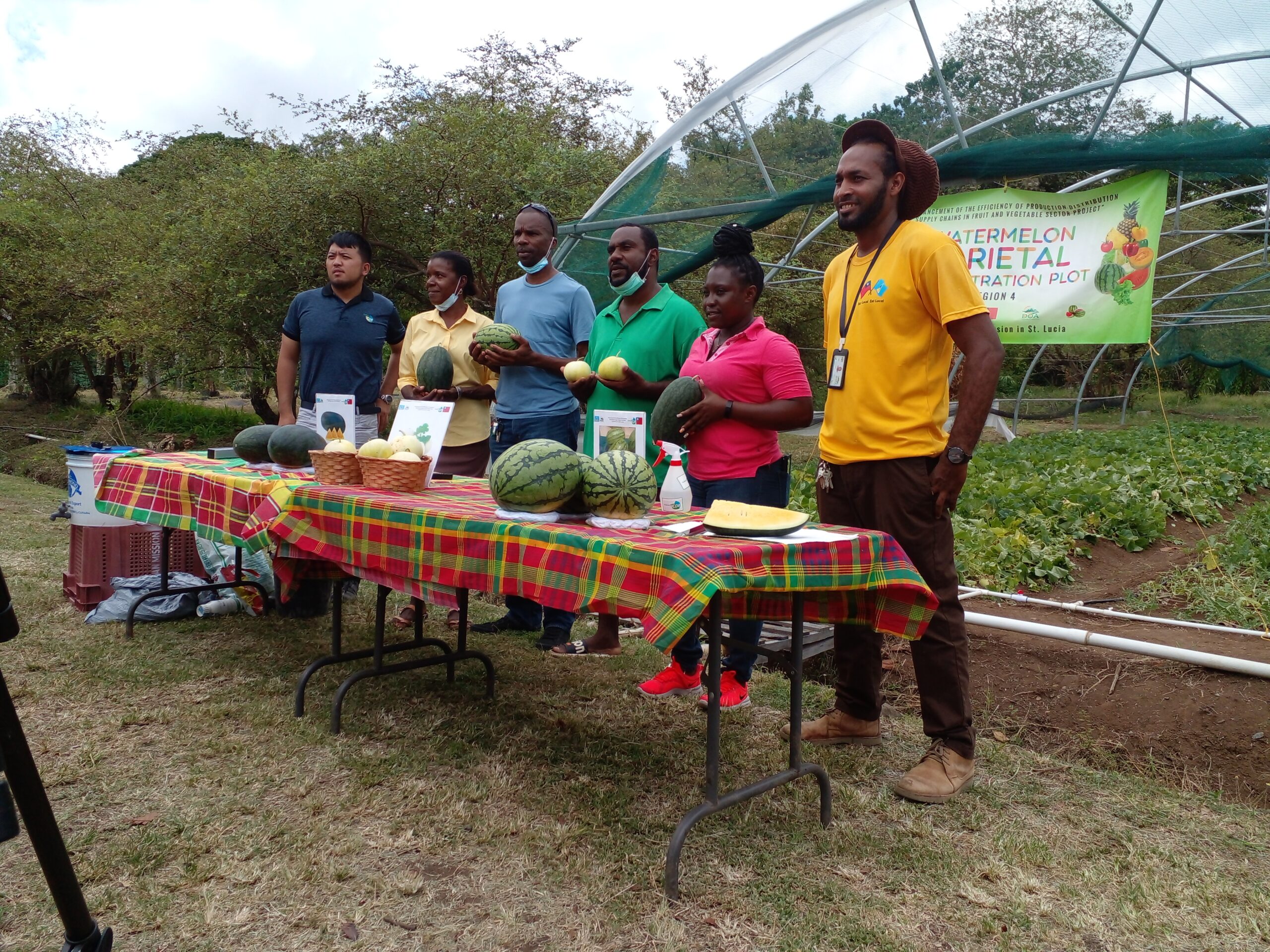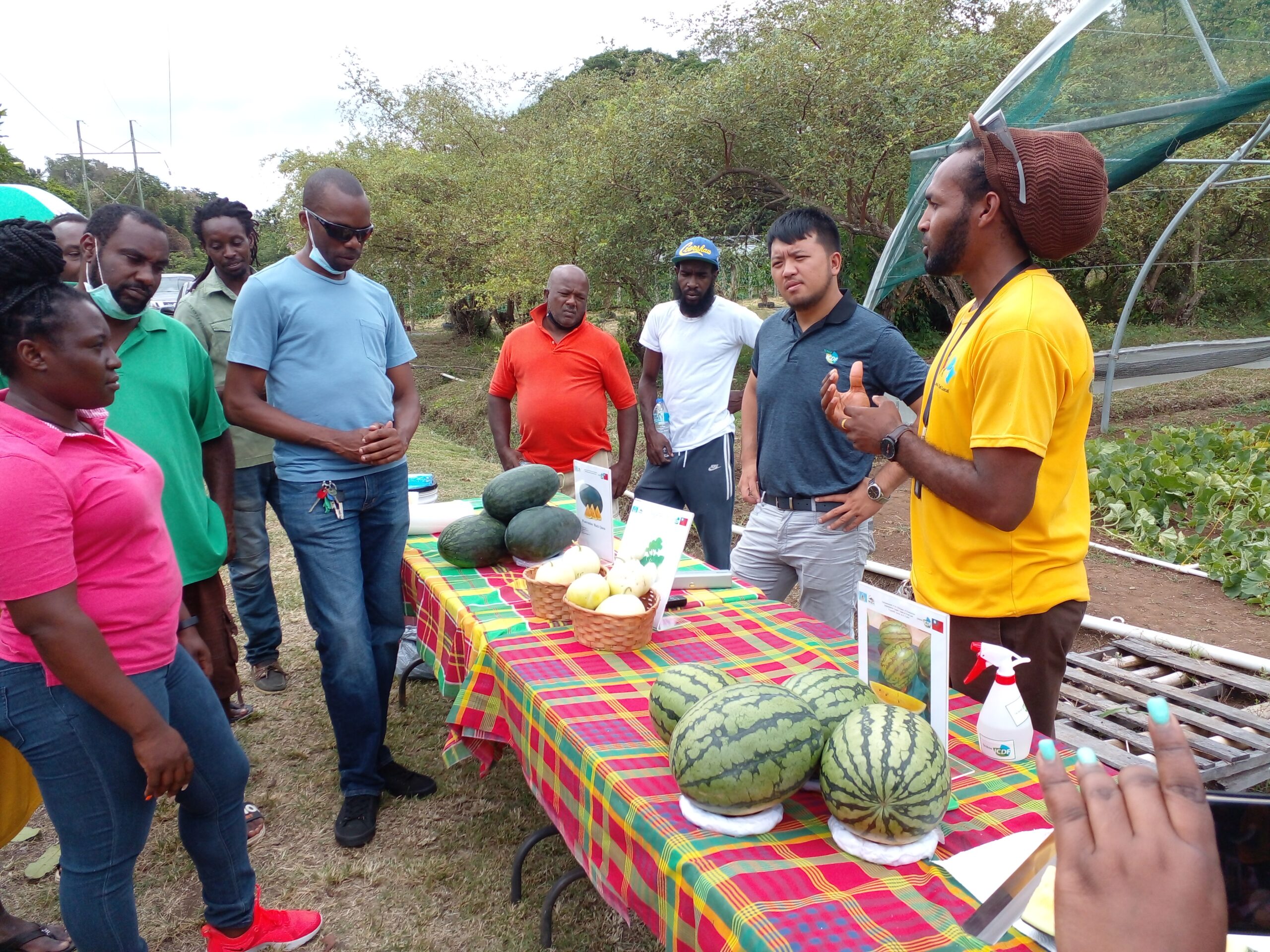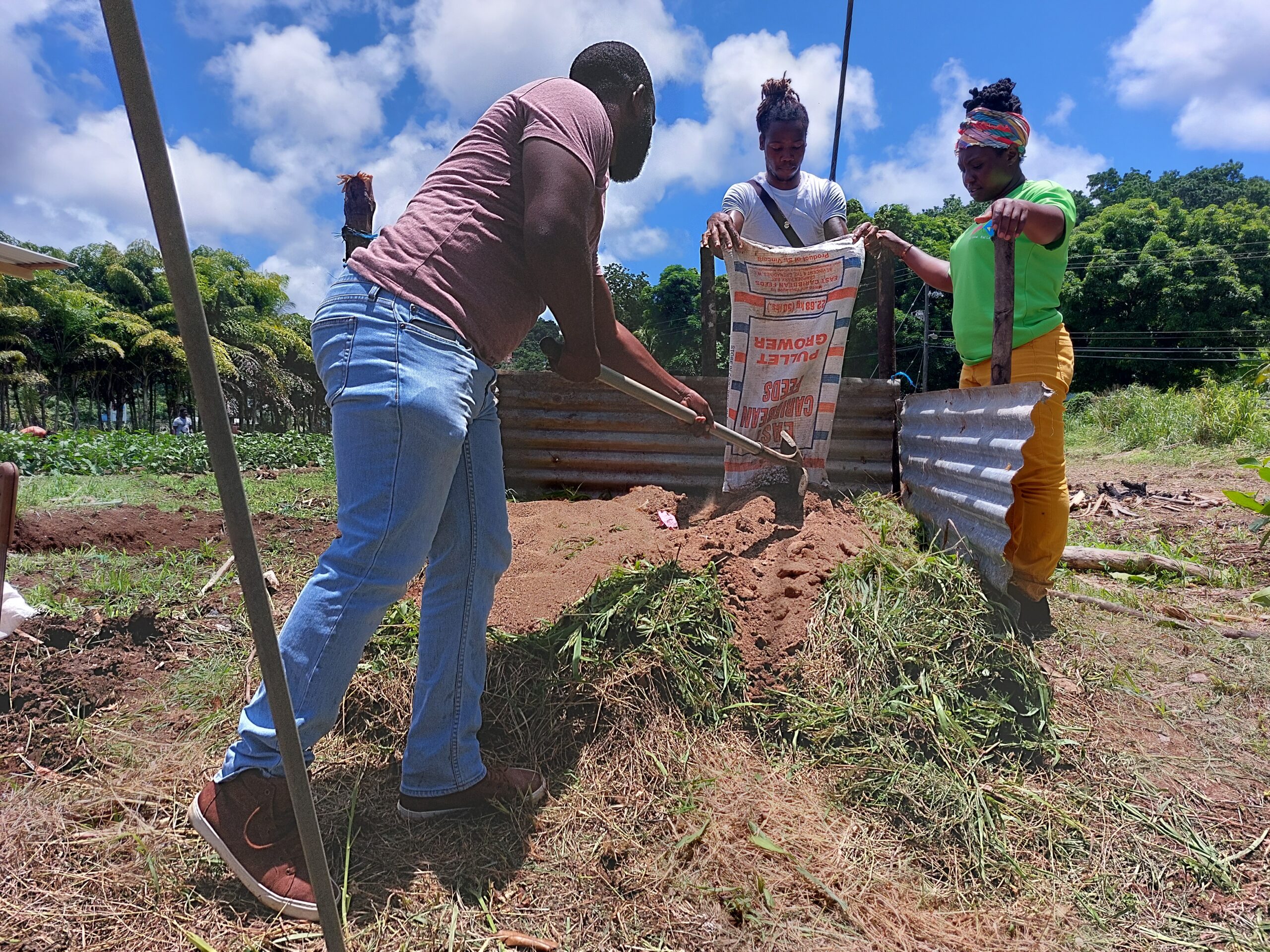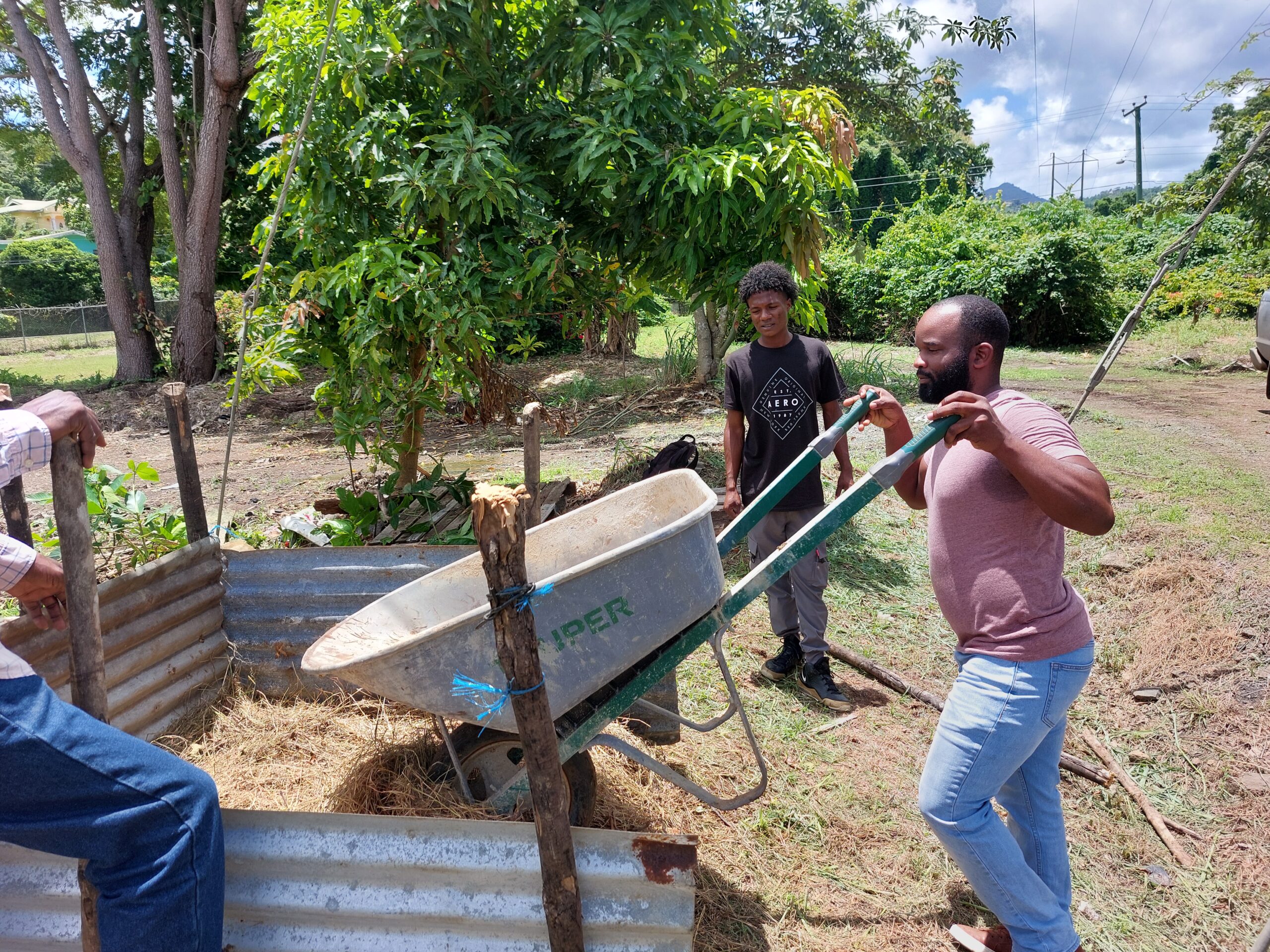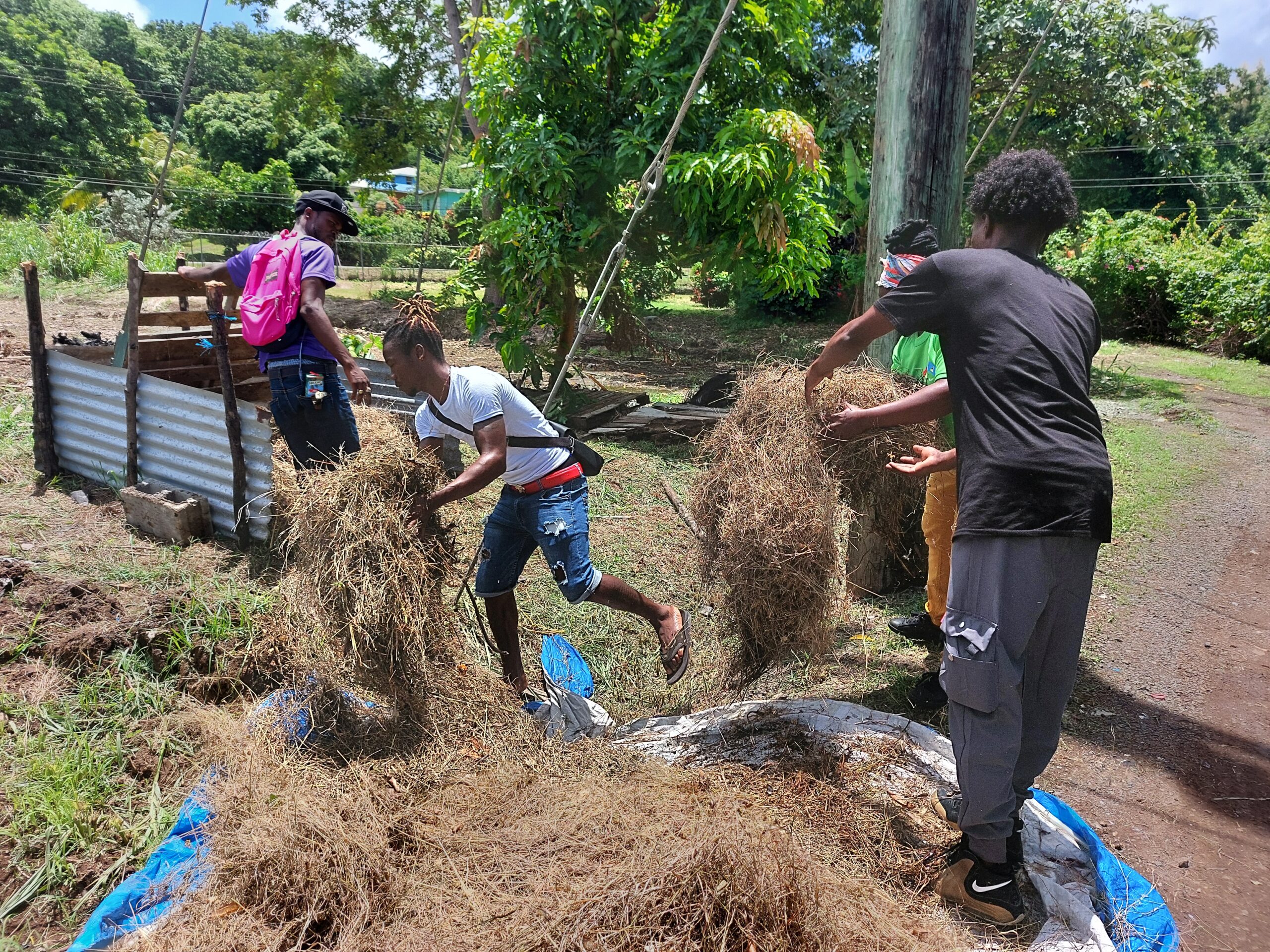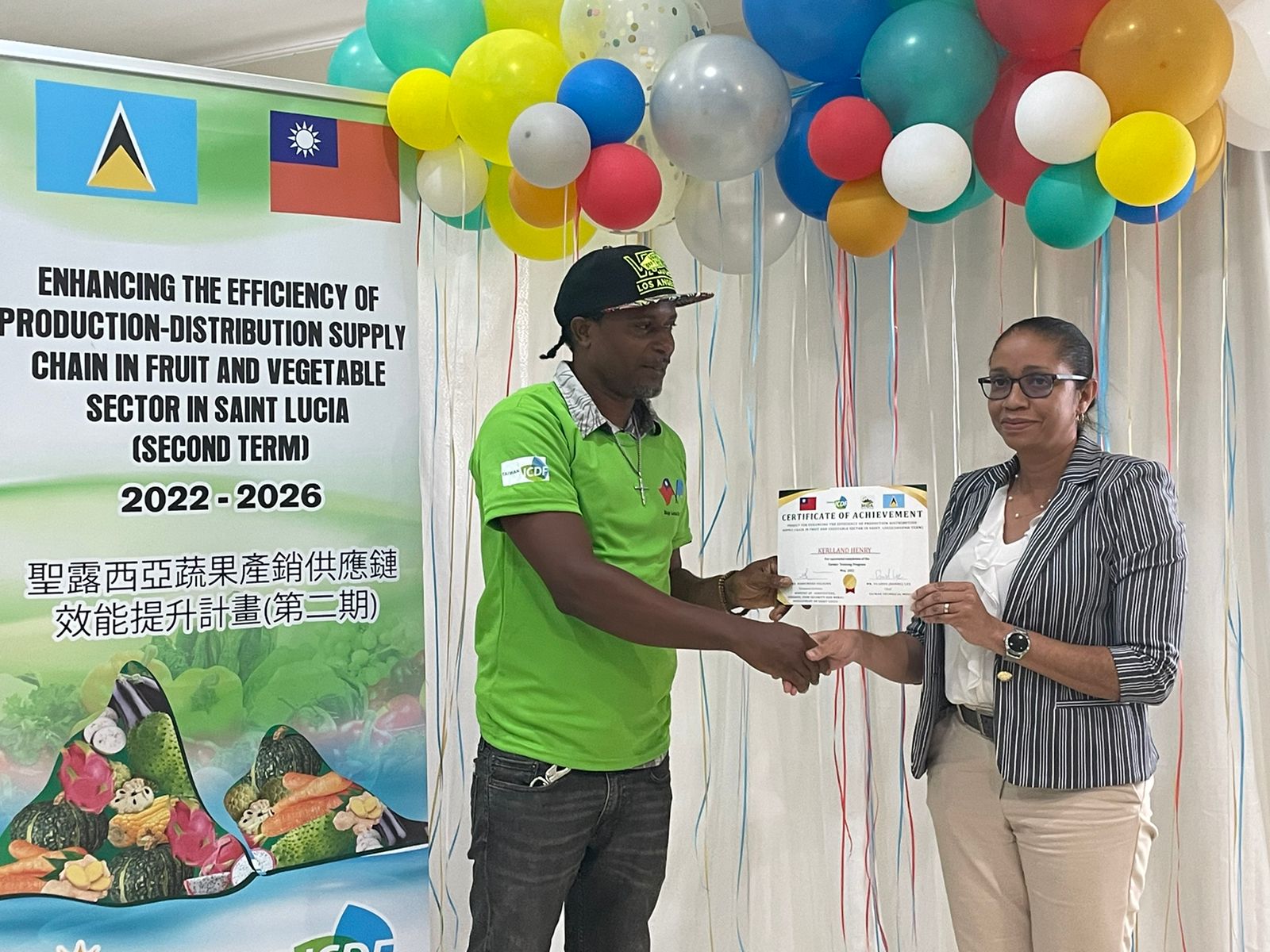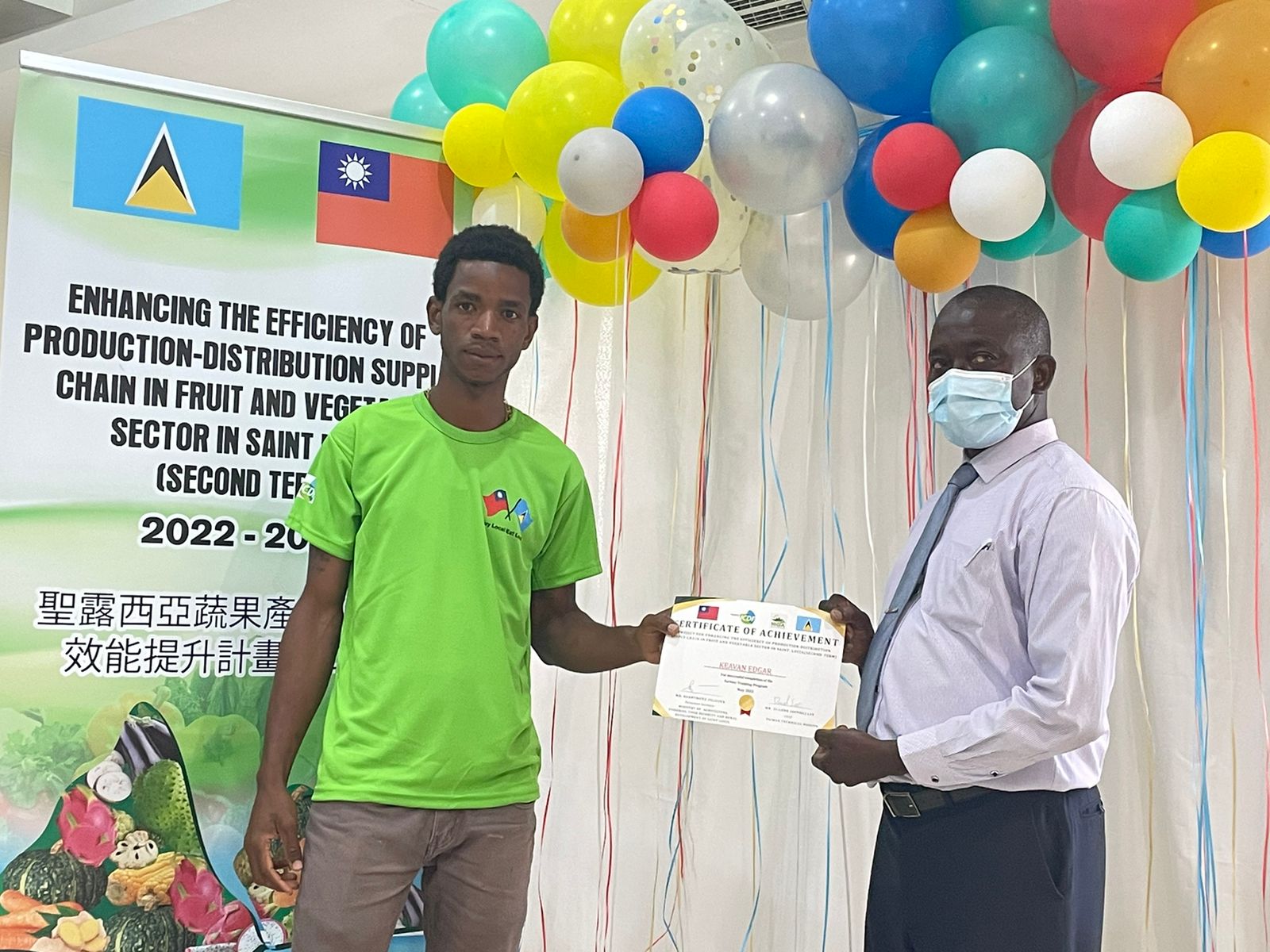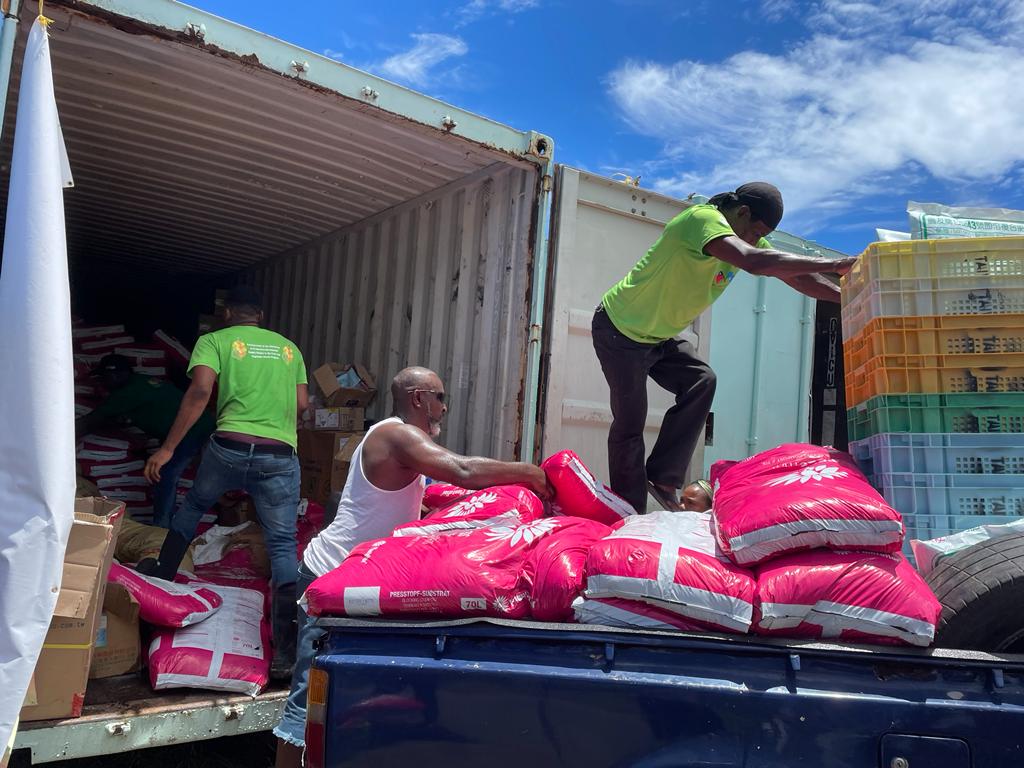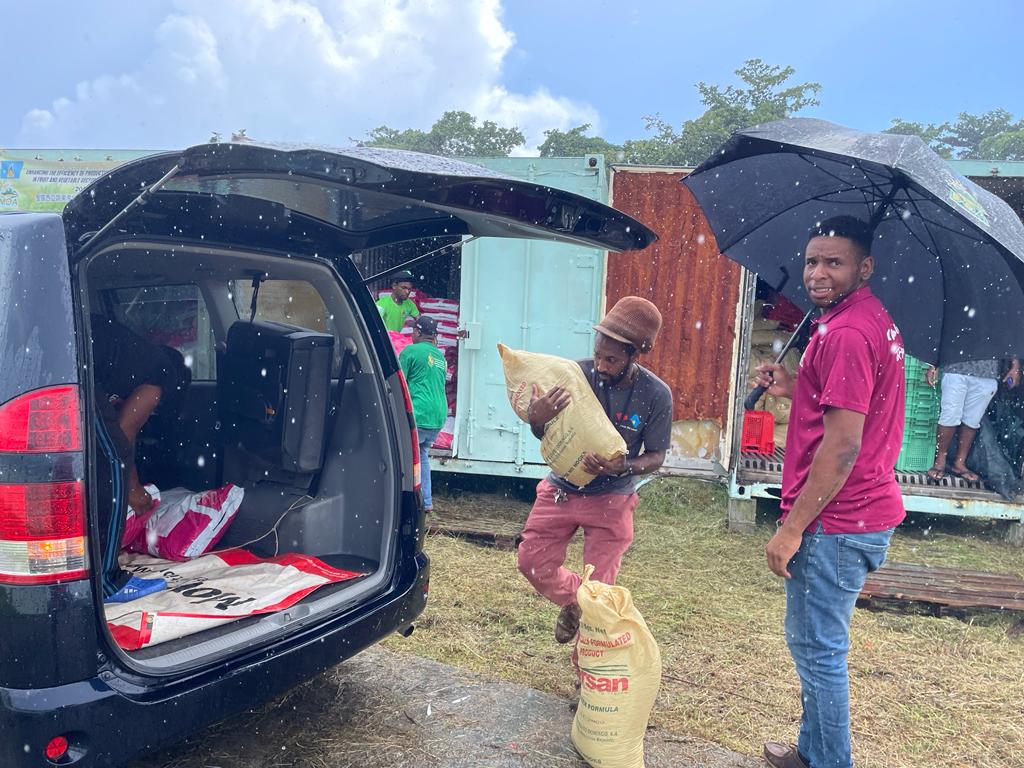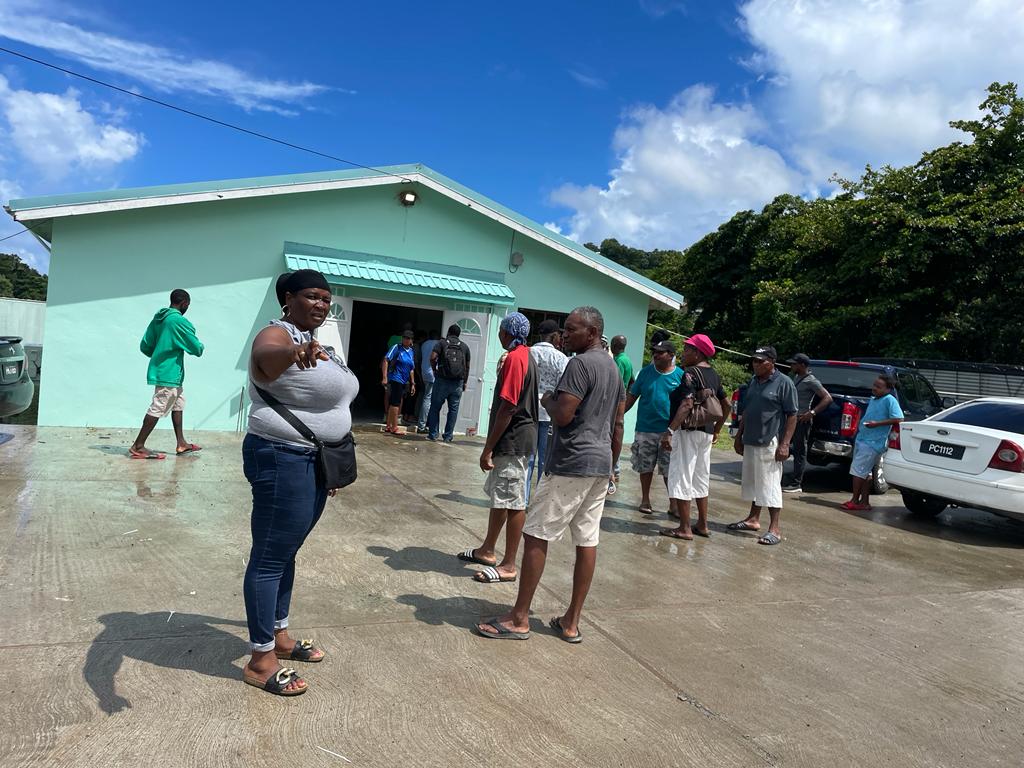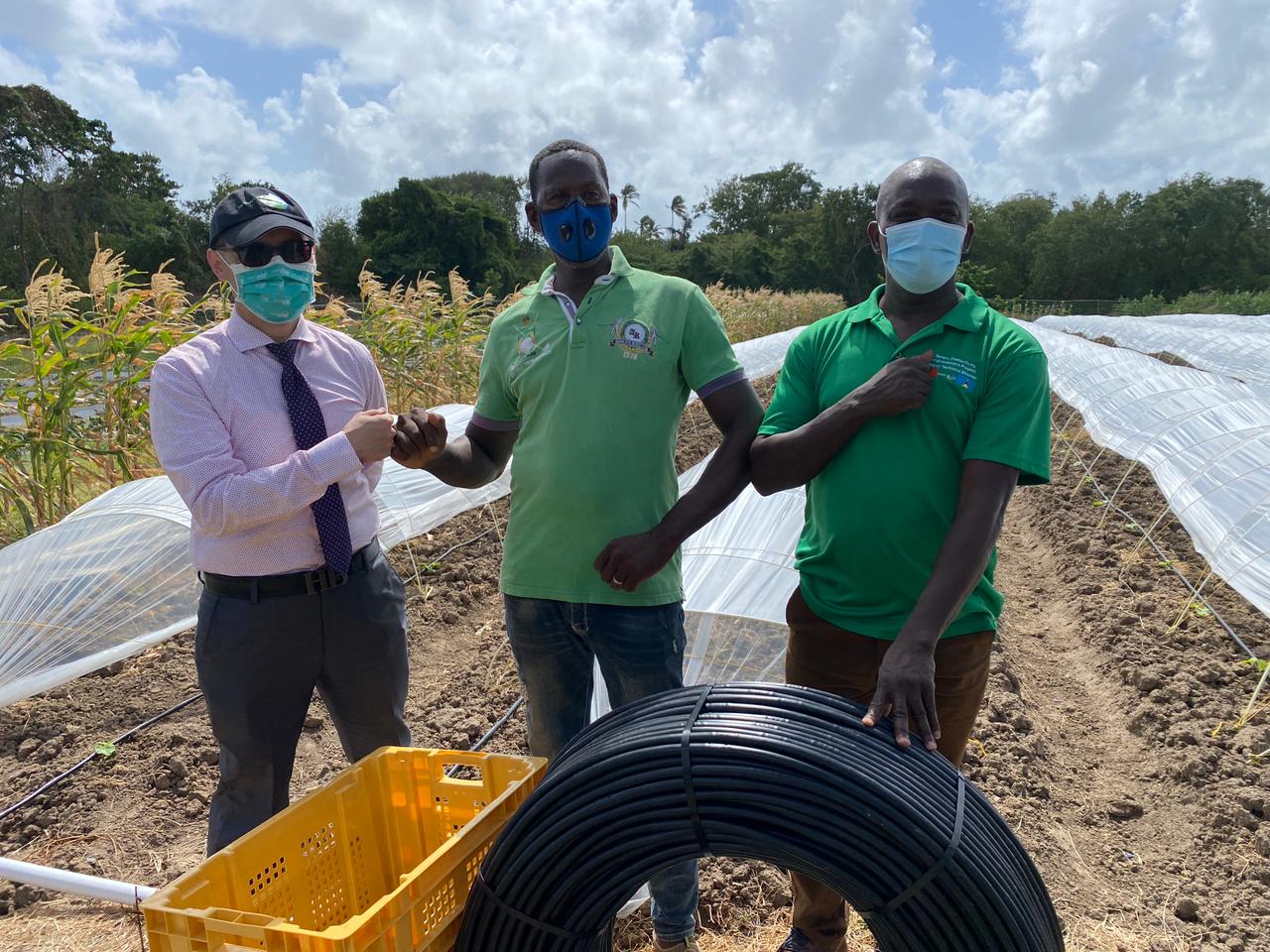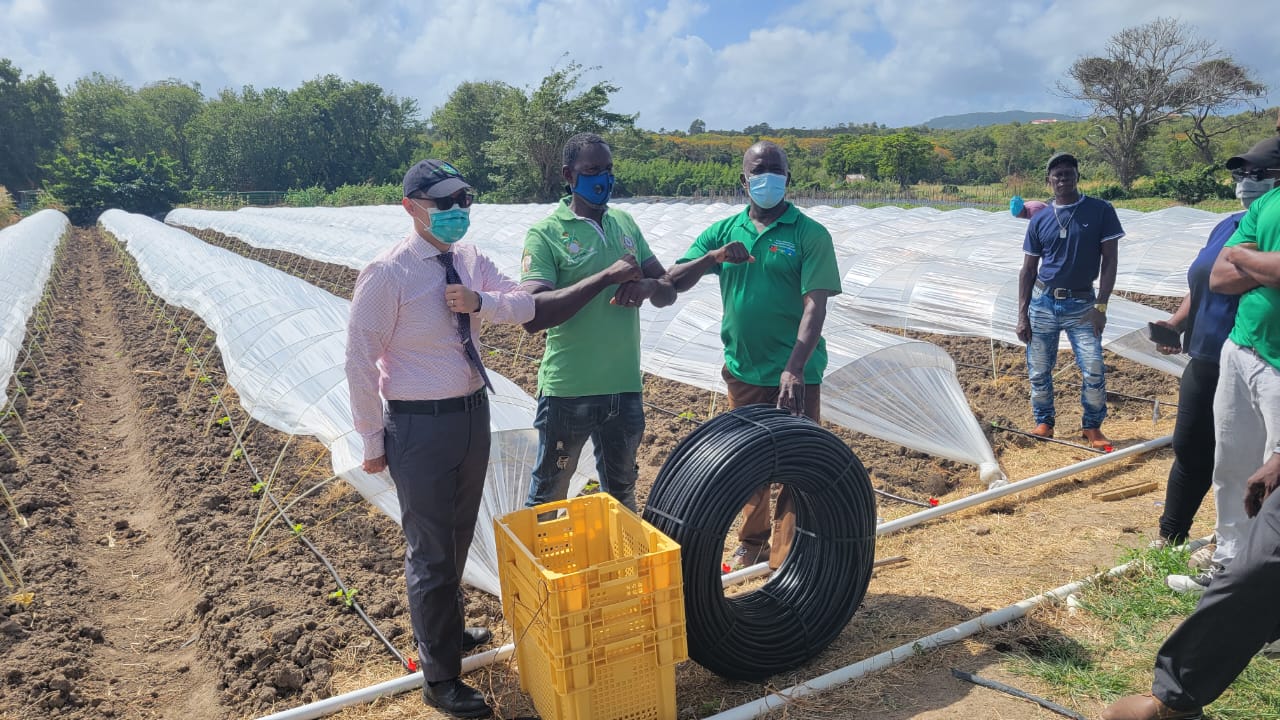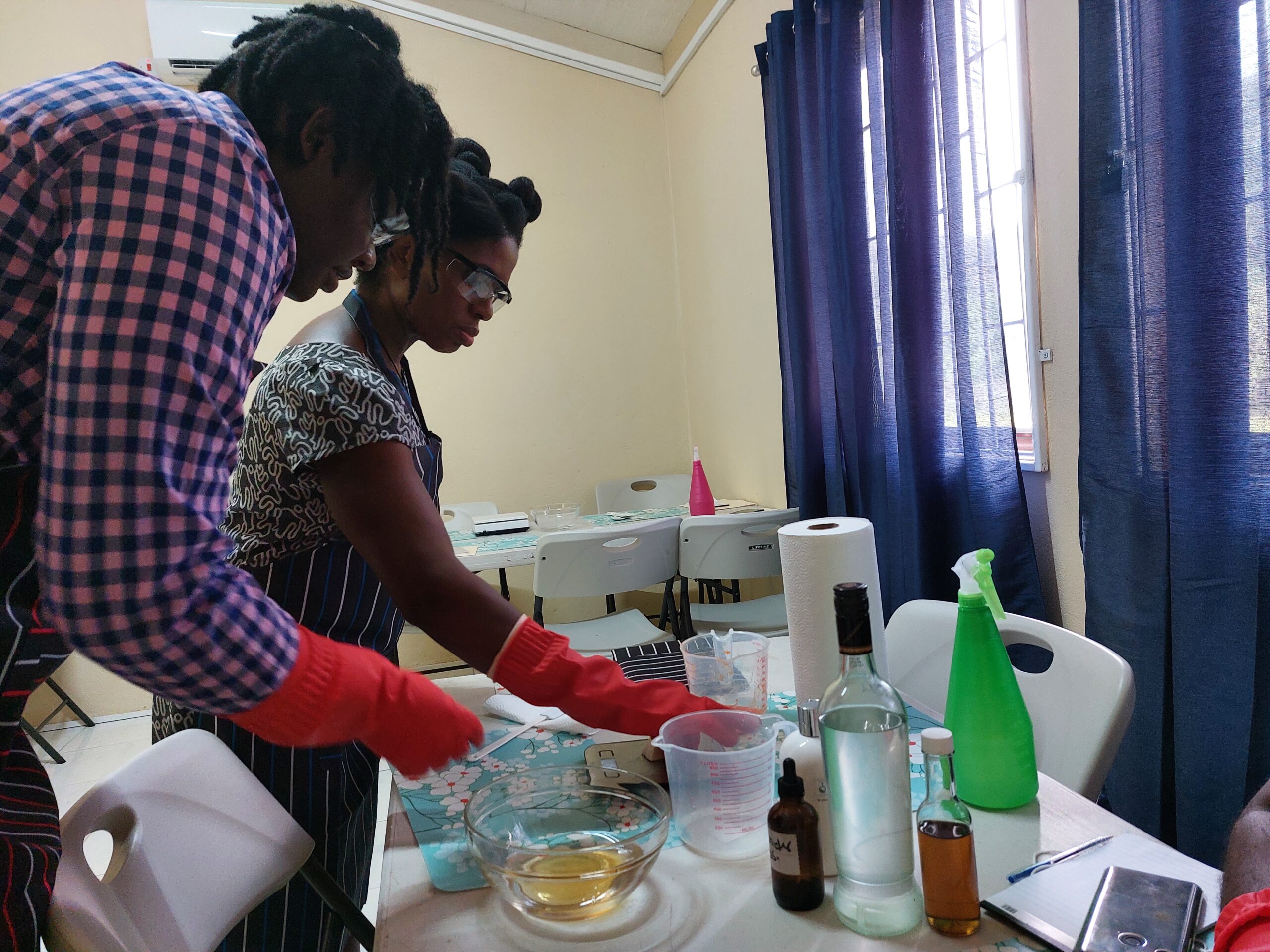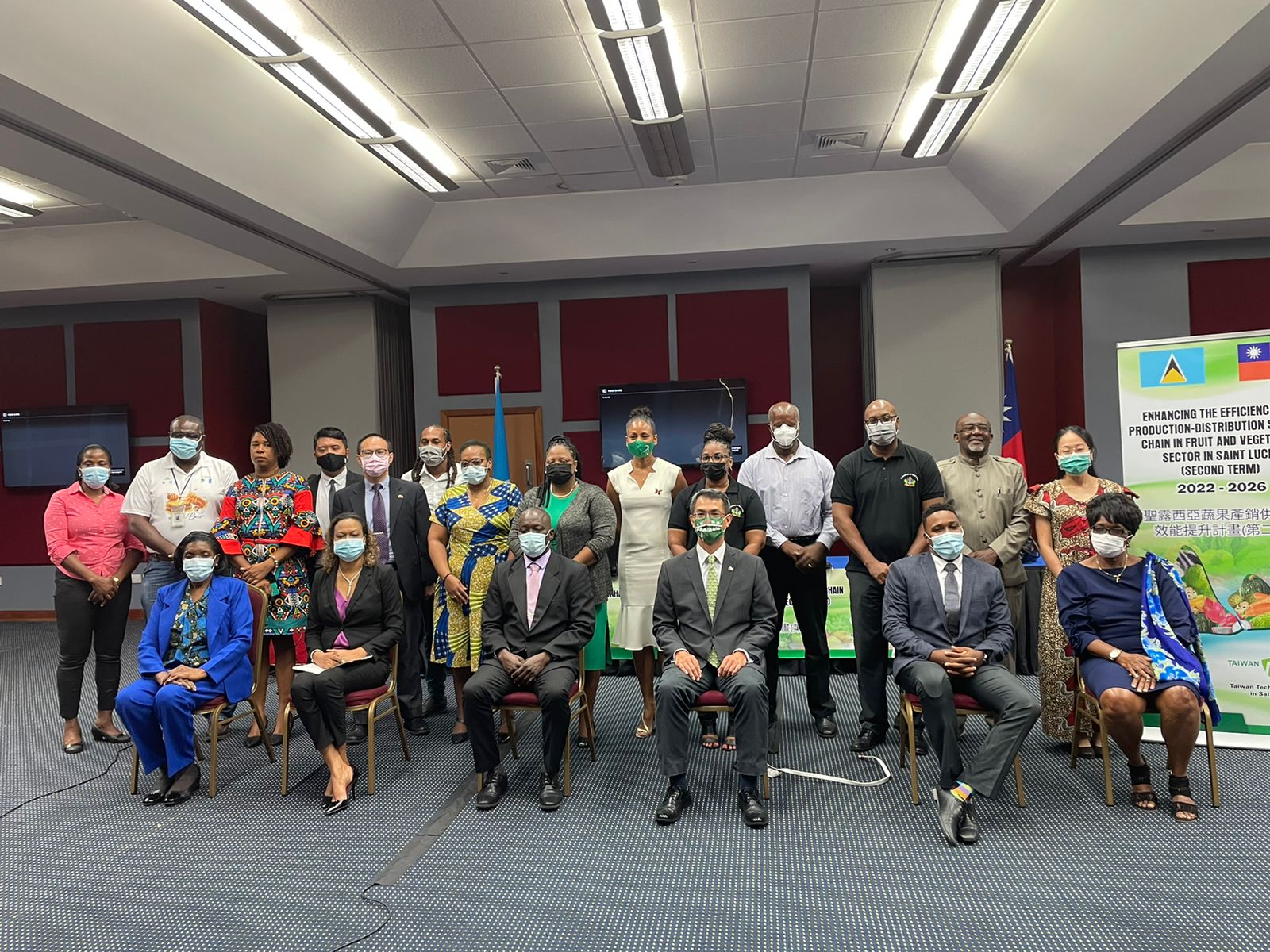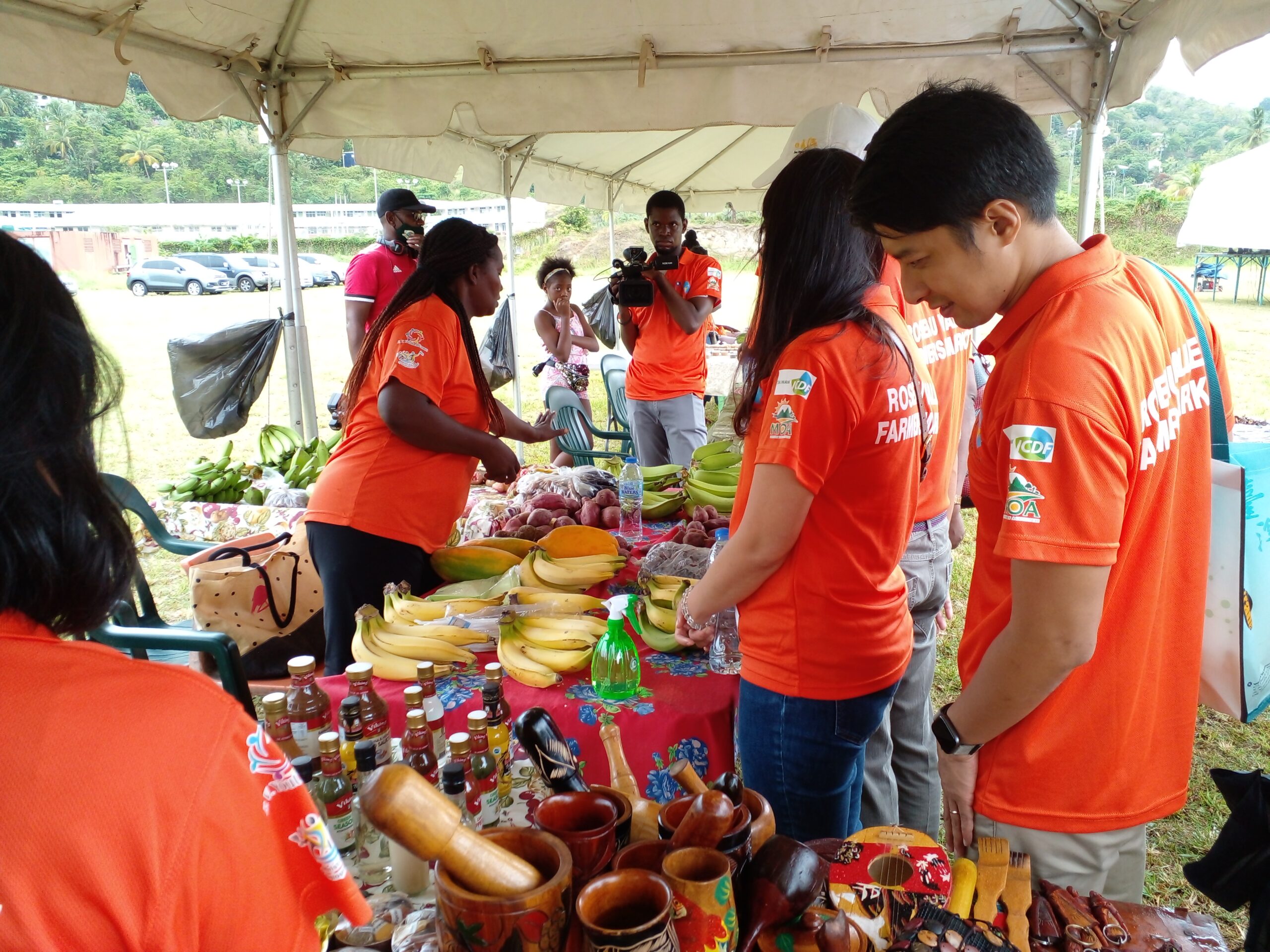7 CROPS PHASE 2
Enhancement of the Efficiency of the Production-Distribution Supply Chain of Fruit and Vegetable Sector in Saint Lucia
(7-CROPS PROJECT)
PHASE 2 OVERVIEW
This project is a continuation of the first phase which lasted three years The second term of the project is for five (5) a year period commencing from 1st January 2022 to 31st December 2026. The project seeks to;
To enhance diversification of the agricultural sector through increased production of targeted crops which includes sour sop, sugar apple, pumpkin, squash, corn, eggplant, dragon fruit, cabbage, zucchini, and carrot.
The project seeks to meet its projected outcomes through, the establishment of demonstration plots, conducting irrigation need assessment; for subsequent irrigation assistance to farmers, compost training, small-scale agriculture machinery, hosting input sales, training in agro-processing, assisting St. Lucia Marketing Board to develop internal HACCP standard.
PROJECT LOCATION: Island-wide with some inclination toward agricultural belts and farming communities.
Read More
PHASE 1 OVERVIEW :
- To reduce the food import of the seven selected crops by 30% over a 3-year period
- To enhance diversification of the agricultural sector through increased production of targeted crops.
- Reduce the level of drudgery in farming activities thereby making farm work more attractive to farmers young and old alike.
DESCRIPTION OF THE PROJECT
The project seeks to create an enabling environment for the increased production of selected agricultural commodities in order to help in the reduction of Saint Lucia’s food import bill. Saint Lucia’s importation of agricultural produce was approximately EC $27 million in 2016. The project focuses on the increase in the domestic supply of seven crops; cabbage, tomato, lettuce, sweet pepper, watermelon, cantaloupe/honeydew, and pineapple. Reduce Saint Lucia’s reliance on external sources for the supply of its domestic market demands for agricultural produce. Expand the area under cultivation where land is available thereby increasing income & food security. Reduce Saint Lucia’s vulnerability to internal and external food insecurity threats. Saint Lucia is expected to be 100% self-sufficient in the production of tomato, pineapple, sweet pepper, and watermelon. Decrease the food import bill and ensure increased production of high-quality nutritionally rich foods. The anticipated impact of this initiative will be an Increased reliance on domestic agricultural produce for the supply of adequate, safe and nutritious food, to satisfy the national demand for food. consistent with the government’s policy priorities. To foster economic growth through increased production and productivity of agricultural commodities. Create employment opportunities, particularly for vulnerable groups in Rural Communities leading to a reduction in poverty and crime.
Project Gallery
Playlist
SUMMARY
OF ACCOMPLISHMENTS
SURVEYS
BASELINE SURVEY
- Continuation of baseline survey for unregistered farmers
- Conducting of surveys
- Data Entry
- Updating of information to reflect current crops
CROP MONITORING
Data entry of information collected and sharing of information with Marketing unit
- Crop monitoring forms were completed across the regions for all farmers engaged in 7 crops
Monitoring information collected to reflect established crops with their respective
CAPACITY BUILDING
EXTESNION OFFICER TRAINING
Training of ALL extension Officers
Theme of workshop Training the Modern Extensionist:
Duration: 1 week training
Training of Extension officers in several agronomic and management practices
- Demonstration & participation of hoop greenhouse set up
- Hand pollination training
- Pruning of cantaloupe and honeydew
- Trellising of cantaloupe under greenhouses
FARMER TRAINING
Training of farmers in all the Regions
Training in:
- Good Agricultural Practices (GAPs)
- Marketing/ Business Planning
- Post-Harvest Technology by
- Production scheduling
- Pesticide use and Safety
- Record Keeping /Budgeting Brief Introduction to project
STAKEHOLDER MEETINGS
- Engagements of all sectional heads; extension, Research, Propagation, Engineering, Communications, IT, Planning, Marketing,
- Monthly Meeting with extension officers
- Senior staff Meetings
- Meeting with Marketing Entity
- Meetings with Minister and Ministry Management
- PMDU meetings
MARKETS/ MARKET INTELLIGENCE
FARMERS MARKETS HELD at various locations around the island
- Babonneau
- Micoud
- Anse Ger
- Castries
- Rodney Bay
- Roseau
- Vieux Fort
- Richfond
- Soufriere
HOTELS
Meetings with Purchasing Managers of hotels and importer
SUPERMARKETS
Meetings with Perishable Manager (Massy Stores) Assessment of prices, packaging and availability of the 7 crops at supermarkets
MARKETING UNIT/ STATS UNIT
Information gathering on IMPORTS/ LOCAL PRODUCTION data
PACKHOUSE
Construction of St Lucia’s FIRST HACCAP standard Pack House for fruit and Vegetables:
Construction and remodeling process of a section of Odsan IRDC 100% completed to be used as Pack house facility managed by the Marketing Board for post- harvest technology implementation; grading, sorting, packaging.
ARS (AGRICULTURE RESOURCE SYSTEM)
Development of a farm app for data entry and crop monitoring. Training of Extension Officers and Ministry Management on use of the app
WEATHER STATION
Establishment of three weather stations on island; one in Union, one in Richfond (Region 3) and one in Chouisel (Region 6)
SUBSIDIZED SALE OF INPUTS
Providing farmers across the island the opportunity to purchase farm inputs necessary for production at subsidized prices. The inputs that were for sale included; ground cover, plastic mulch, dripline, tape line, peatmoss and fertilizer (soluble and granular)
CROP TRIALS
Varietal trials have been conducted and will continue on the production of lettuce, cabbage, cantaloupe/honeydew, watermelon and sweet pepper. These trials have been either on the demonstration farm in Union or in selected regions across the island
